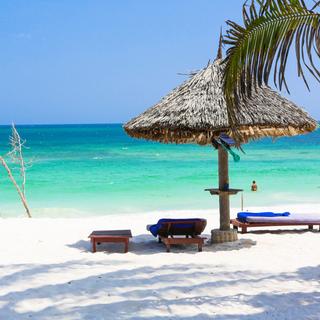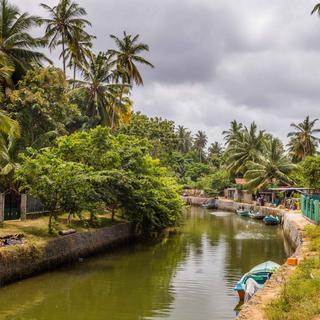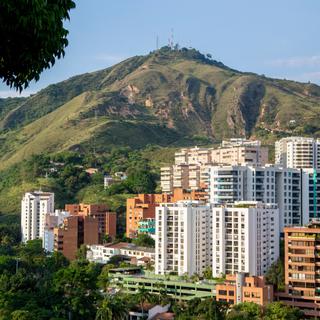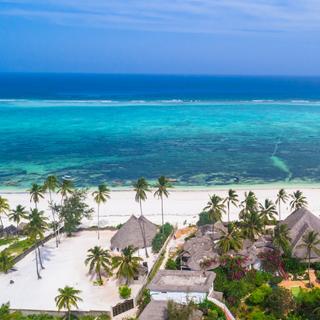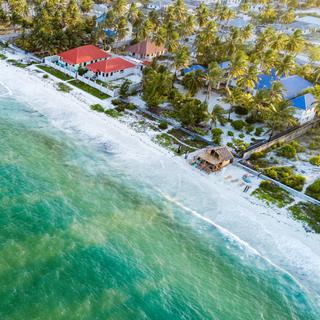
Kiwengwa weather and climate

Kiwengwa weather and climate
Day
29 °C
Night
21 °C
Sea
26 °C
Precipitation
47 mm
in month
Rainy days
5 days
in month
Daylight
12 hours
average
Sunshine
8 hours
average
Humidity
78 %
Weather charts for Kiwengwa
Find more destinations like this
Destinations with similar weather to Kiwengwa
Other destinations in Zanzibar - Tanzania
Closest cities for Kiwengwa
Last week's weather in Kiwengwa
During the week of 23 June 2025 - 29 June 2025, temperatures averaged at 27 °C (81 °F) during the day and dropped to 23 °C (73 °F) at night. The current temperatures are slightly below the long-term average for Kiwengwa, with the daily and nighttime temperatures being 29 °C (84 °F) and 22 °C (72 °F), respectively. The average temperatures observed during different times of day (based on local time) were as below: 7am 23 °C (73 °F), 10am 25 °C (77 °F), 1pm 26 °C (79 °F), 4pm 27 °C (81 °F), 7pm 24 °C (75 °F), 10pm 24 °C (75 °F).
During this week: 1 day without rain, 2 days with light rain and 4 days with moderate rain were observed. During the whole week, total of 20 mm (0.79 in) of precipitation was observed, which is slightly above the long term average for Kiwengwa, which is 16 mm (0.63 in). The average cloud coverage during the daytime (from dawn to dusk) was 42 %.
The wind's speed averaged 4.8 m/s. Prevailing wind direction(s) were South-East and South. The air pressure varied between 1014 hpa and 1019 hpa. The average air humidity was 78 % in Kiwengwa.
On average, there were 3 hours clear skies, 2.5 hours partially overcast skies, 1 hour overcast skies and 5.5 hours rainy weather during the daytime (from dawn to dusk). The sunrise on average occurred at 06:31, and the sunset occurred at 18:18.
Weather overview for Kiwengwa
Weather overview
The coastal region of Kiwengwa in Tanzania is characterized by a warm and inviting tropical climate, affording visitors a range of weather experiences throughout the year. Daytime temperatures reach a high of 33 °C (92 °F) in February and cool down to about 29 °C (83 °F) in the cooler month of July. Throughout the night, temperatures fluctuate between 20 °C (69 °F) in the cool September nights to 24 °C (75 °F) during the warmer January evenings. When it comes to sea temperatures, water enthusiasts will find March waters the warmest at 29 °C (84 °F), whilst August offers the coolest dip at 25 °C (78 °F). The dry season peaks in February with only 4 days of rainfall, while the wettest month is April with rainfall spanning across 17 days. Kiwengwa's weather truly provides a dynamic backdrop for vacationers and residents alike.
January weather
In Kiwengwa, as the tourist season nears its peak, there is a notable decrease in both the number of rainy days, recorded at 7 days, and the rainfall volume, which begins to fall, measuring 55 mm (2.18 in). Nighttime temperatures reach their highest.
February weather
The highest daytime temperatures in Kiwengwa can be observed in February, reaching up to 33 °C (92 °F). The budding tourist season is marked by the maximum amount of sunshine, clocking in at 8 hours, while humidity falls to its lowest for the year, now at 76 %. February also sees the fewest rainy days.
March weather
Sea temperatures in Kiwengwa reach their yearly maximum of 29 °C (84 °F) during this time, as the tourist season is well underway. The onset of increased rainfall is evident with 11 days of rain, and a significant rise in rainfall volume to 164 mm (6.46 in). Meanwhile, the amount of sun sans clouds begins to diminish, noted at 7 hours.
April weather
April marks the commencement of the wet season in Kiwengwa, with a slight drop in daily temperatures to 31 °C (88 °F). Kiwengwa witnesses the maximum rainfall recorded at 376 mm (14.82 in), along with the highest number of rainy days. The minimal hours of sunlight, which stands at 6 hours, and increasing humidity levels reaching 83 %, are also present during this month.
May weather
As Kiwengwa transitions from May, there is a continued decline in day temperatures, while the onset of lowering sea temperatures is evident, currently at 28 °C (82 °F). The wet season persists, and the number of rainy days begins to decrease, counted at 15 days, coupled with a diminishing rainfall volume. The increase in the number of sun-filled hours is noticeable, registering at 6 hours.
June weather
As Kiwengwa approaches June, the tourist season gradually begins with a further reduction in sea temperatures to 27 °C (80 °F), and a likewise trend in daytime temperatures reaching 29 °C (85 °F). The reduction in rainfall implies dropping to 77 mm (3.02 in), and the decrease in the number of rainy days continues, now at 7 days. Nighttime temperatures also show a downward trajectory.
July weather
In Kiwengwa, July signifies the continuation of the tourist season. Sea temperatures continue to drop, now measured at 26 °C (78 °F), while the daily temperatures reach their annual lowest point at 29 °C (83 °F). The decrease in rainy days is still prevalent, coming in at 5 days, as well as the downturn in rainfall volume, now calculated at 47 mm (1.86 in). Night temperatures keep on their downward slope.
August weather
August in Kiwengwa is nearly at the peak of the tourist season. The commencement of day temperature rise is observed, settling at 29 °C (84 °F), whilst the sea temperature hits its yearly minimum at 25 °C (78 °F). The number of rainy days begins to increase again, now at 7 days. Night temperature fall-off continues, recording at 21 °C (69 °F).
September weather
Continuing its upward trend, September sees daytime temperatures in Kiwengwa reaching 30 °C (86 °F), while the nighttime temperatures hit their lowest for the year at 20 °C (69 °F). Pending peak tourist season, the rainfall amounts reach their minimal levels at 31 mm (1.22 in), and the trend of increasing sunlight hours becomes more pronounced, amounting to 8 hours.
October weather
Through October, Kiwengwa sees a further rise in day temperatures, now at 31 °C (88 °F), while the sea temperatures also ascend, registering at 26 °C (80 °F). The tourist season remains impending, with an uptick in both the number of rainy days, totaling 8 days, and the start of an increase in rainfall volumes. The night temperature rise is also taking form in this month.
November weather
In Kiwengwa, November heralds a rise in daytime temperatures to 32 °C (90 °F), accompanying the elevation of sea temperatures to 28 °C (82 °F). The progression in the number of rainy days is notable, reaching 14 days, and the escalation in rainfall volume is also evident, marked at 134 mm (5.29 in). The tourist season is in full swing in November, featuring an increase in night temperatures at 23 °C (73 °F).
December weather
December in Kiwengwa continues the tourist season trend with rising day temperatures at 33 °C (91 °F), alongside increasing sea temperatures noted at 28 °C (83 °F). The reduction in number of rainy days is seen, registering at 12 days. The nighttime temperatures continue on an upward climb, measuring at 24 °C (75 °F). Day length reaches its peak during this month.
FAQs
What temperatures can be expected in Kiwengwa during January days?
In January, the average daytime temperature in Kiwengwa hovers around 33 °C (91 °F), ideal for beach outings or lounging by the pool. Ensure you stay hydrated in the heat.
What is the nighttime temperature in Kiwengwa during February?
February's average nighttime temperature in Kiwengwa is a comfortable 24 °C (75 °F), perfect for evening leisure activities or morning exercise. Look for accommodations with air conditioning for the best experience.
How strong are the winds in March in Kiwengwa?
The average wind speed in March in Kiwengwa is measured at 4, indicating moderately breezy conditions.
Is April typically the wettest month in Kiwengwa?
Yes, April is known as the wettest month in Kiwengwa, experiencing a peak in rainfall at approximately 376 mm (14.82 in), spread over 17.
Is May in Kiwengwa a dry or wet month?
May in Kiwengwa is part of the wet season, with an expected 15 days of rain throughout the month.
Are June's conditions favorable for visiting Kiwengwa?
June in Kiwengwa offers prime vacation weather with pleasant daytime temperatures of 29 °C (85 °F) and an inviting sea temperature of 27 °C (80 °F). Nightfall brings mild 22 °C (71 °F), and you can anticipate only 7 days of rain, so leaving your raincoat behind is a good idea.
Is July considered a wet season in Kiwengwa?
July in Kiwengwa is not classified as a wet season, with rain occurring on just 5 days during the month, making it relatively dry.
Is August in Kiwengwa a hot month?
August in Kiwengwa is characteristically warm with temperatures that are pleasant and comfortable for most guests.
What is the temperature of the sea in Kiwengwa during September?
September in Kiwengwa boasts a warm sea temperature averaging 26 °C (78 °F), comfortable for most to linger in its waters.
How frequently does it rain in Kiwengwa in October?
October in Kiwengwa showcases an average of 8 days marked by rain, thus indicating a considerable change in the weather toward more frequent precipitation events.
What humidity levels can be expected in Kiwengwa in November?
November in Kiwengwa usually presents with humidity around 82 %, slightly above the normal range yet still manageable for most visitors.
How much sunshine can be expected in Kiwengwa during December?
Expect ample sunlight in December in Kiwengwa, with an average of about 8 hours of clear skies per day.
